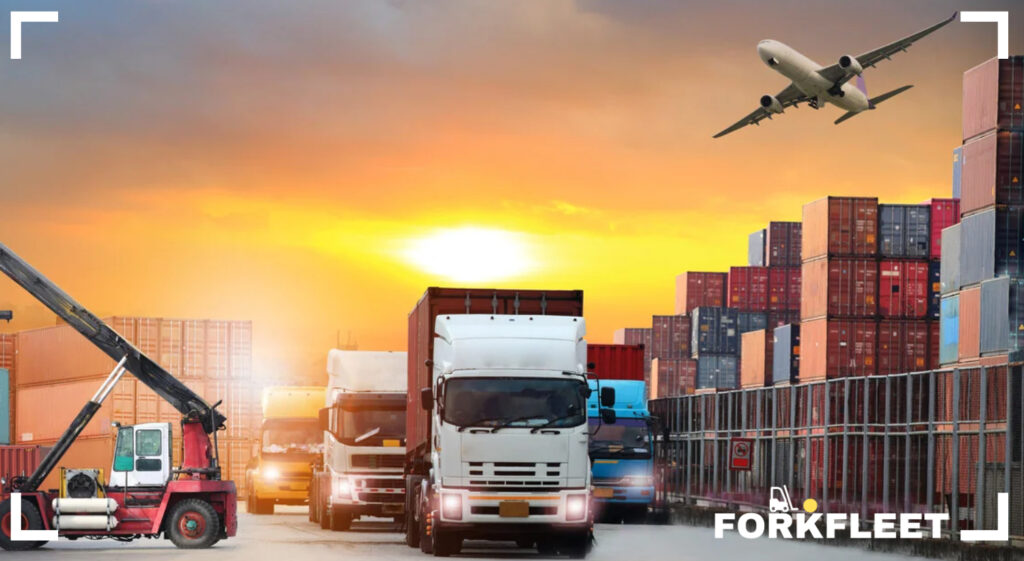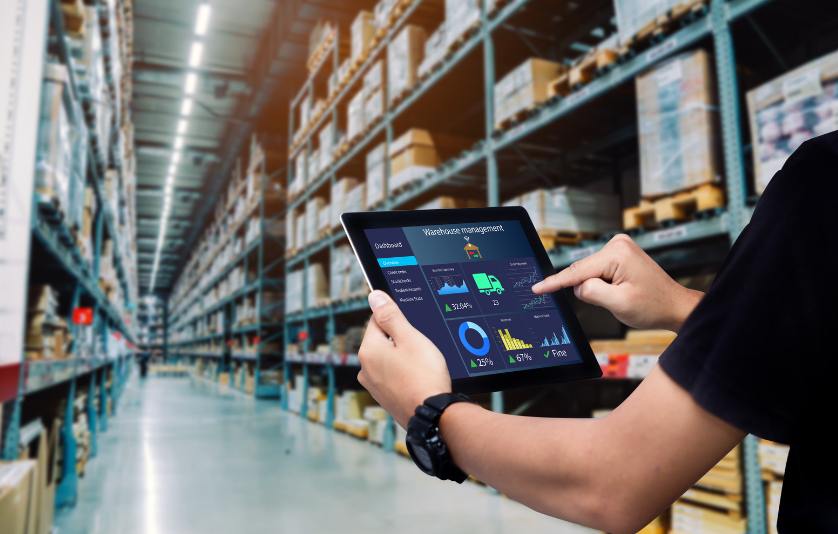3PL (Third-party Logistics) refers to the outsourcing of logistics and operational functions, such as warehousing, transportation, and order fulfillment, to a third-party provider. These providers specialize in integrating and managing these logistics services to streamline operations and reduce costs for businesses. In the context of international shipping, 3PL becomes crucial as it involves complex processes including customs clearance, international freight forwarding, and adherence to diverse regulatory requirements across different countries. By leveraging the expertise and networks of 3PL providers, businesses can navigate these complexities more efficiently, ensuring that their products reach global markets in a timely and cost-effective manner.
Global Logistics Market and the Rise of E-commerce
The global logistics market has witnessed exponential growth, driven by globalization, advancements in technology, and most notably, the unprecedented surge in e-commerce. As consumers increasingly turn to online platforms for purchasing goods, businesses face the pressing need to adapt their supply chains to meet the demands of global distribution. This surge has not only increased the volume of goods being shipped worldwide but has also heightened the expectations for speed and reliability in delivery services. The rise of e-commerce has, therefore, significantly amplified the role of efficient and effective logistics systems, positioning 3PL providers as essential partners for businesses looking to thrive in this dynamic environment.
3PL Services for Businesses Expanding Internationally
For businesses aiming to expand internationally, navigating the complex landscape of global logistics can be a daunting task. This expansion involves more than just moving goods from one point to another; it requires comprehensive management of supply chains, compliance with international regulations, and adaptation to diverse market dynamics. This is where 3PL services become indispensable. They provide businesses with the expertise and infrastructure necessary to scale operations globally, without the need to invest heavily in their own logistics systems. By partnering with 3PL providers, businesses can leverage specialized knowledge, reduce overhead costs, and focus on their core competencies, all while ensuring their products are delivered to international customers efficiently and effectively. In an era marked by globalization and digital commerce, the strategic utilization of 3PL services is not just an option for businesses looking to expand internationally—it has become a critical element for success.
3PL Services
The landscape of 3PL services is diverse, each catering to different aspects of the logistics and supply chain:
Warehousing
Includes storage facilities, inventory management, and order fulfillment. Warehouses offered by 3PL providers are typically strategically located to optimize the distribution process, reduce delivery times, and lower costs.
Transportation
Encompasses a variety of modes including road, rail, air, and sea. 3PL companies negotiate rates, manage schedules, and ensure the timely delivery of goods. They often utilize a network of carriers to provide flexibility and scalability.
Freight Forwarding
Acts as an intermediary between the shipper and transportation services, handling the logistics of shipping goods internationally, including route planning and the booking of cargo space.
Customs Brokerage
Involves the clearing of goods through customs barriers for importers and exporters. This includes preparation and submission of documentation, calculation of taxes and duties, and ensuring compliance with local and international trade regulations.
Added Services
Can include packaging, labeling, quality control inspections, and return logistics. These services help businesses tailor their logistics operations to meet specific product or market demands.
The Evolution of 3PL Providers
The role and nature of 3PL providers have evolved significantly in response to global changes. Initially, these services were fairly rudimentary, focusing mainly on transportation and warehousing. However, as globalization expanded the reach of supply chains, the need for more comprehensive, integrated services grew. This evolution was further accelerated by advances in technology, such as cloud computing, IoT (Internet of Things), and AI (Artificial Intelligence), which have enhanced the efficiency, transparency, and reliability of 3PL services.
Types of 3PL Providers
The range of services offered leads to a variety of 3PL provider types, each specializing in different aspects of the logistics process:
- Standard 3PL Providers – Offer basic logistics services such as transportation and warehousing.
- Service Developer – Provide value-added services on top of standard offerings, such as tracking and tracing, cross-docking, specific packaging, or security systems.
- Customer Adapter – Manage all or most of a customer’s logistics activities. These providers immerse themselves in the client’s business, typically managing their entire logistics function.
- Customer Developer – The highest level of 3PL provider, fully integrating itself with the client’s business and effectively taking full control of their supply chain.
The choice among these types depends on the specific needs, resources, and goals of the businesses seeking 3PL services. By understanding the different types of 3PL providers and the range of services they offer, businesses can make informed decisions that align with their logistics and overall strategic objectives.
The Role of 3PL in International Shipping
Third-party logistics (3PL) providers play a crucial role in the facilitation of international trade, acting as a linchpin between businesses and the complex global market. By leveraging their expertise, networks, and technology, 3PLs enable companies to navigate the intricacies of international shipping, thereby expanding their reach and operational capabilities beyond local markets.
Facilitation of International Trade
3PL providers are instrumental in bridging the gap between local operations and global markets. They offer businesses the ability to distribute products worldwide without the need to establish their own logistics infrastructures abroad. This is particularly advantageous for small to medium-sized enterprises (SMEs) that might not have the resources to handle international logistics independently.
Functions of 3PL in International Shipping
3PL services are diverse, but several key functions are particularly vital for international shipping:
Cargo Consolidation
By combining shipments from various shippers into one full container load (FCL), 3PL providers can reduce costs and improve shipment efficiency. This service is especially beneficial for businesses that do not have enough goods to fill an entire container.
Documentation and Paperwork
International shipping requires extensive documentation, including bills of lading, export declarations, and import licenses. 3PL providers ensure that all necessary paperwork is accurately completed and filed, helping to avoid delays at customs.
Compliance with Laws and Regulations
Navigating the complex web of local and international laws is a significant challenge in international shipping. 3PL providers stay abreast of regulations and ensure compliance, thereby minimizing the risk of fines, delays, and other penalties.
Customs Brokerage
3PLs often provide customs brokerage services, facilitating the smooth passage of goods through customs by handling duties, taxes, and other required procedures.
Tracking and Tracing
Advanced tracking systems offered by 3PL providers enable businesses to monitor their shipments in real-time, providing transparency and peace of mind.
Case Studies of Successful 3PL Partnerships
To illustrate the role of 3PL in international shipping, consider the following examples:
Fashion Retailer Expansion
A mid-sized fashion retailer wanted to expand its market to Europe and Asia. By partnering with a 3PL provider that specialized in international fashion logistics, the retailer was able to streamline its supply chain, ensuring timely delivery to new markets without investing in local warehouses or distribution networks.
Technology Company Scalability
A fast-growing tech company needed a scalable logistics solution to manage the fluctuating demand for its products worldwide. A 3PL provider offered flexible warehousing and distribution services, allowing the company to efficiently manage its inventory levels and reduce overhead costs.
SME Global Reach
A small manufacturer of specialized machinery sought to reach customers in multiple foreign markets but lacked the resources to manage international shipping. By working with a 3PL provider, the manufacturer was able to leverage the 3PL’s global network and expertise in heavy machinery logistics, significantly expanding its market reach without substantial upfront investment.
These case studies demonstrate how 3PL providers can be strategic partners in facilitating international shipping, offering businesses of all sizes the opportunity to globalize their operations effectively and efficiently. Through comprehensive logistics services, 3PLs enable companies to focus on their core competencies and growth strategies while handling the complexities of international trade.
Benefits of Using 3PL Providers for International Shipping
Engaging third-party logistics (3PL) providers for international shipping offers businesses numerous advantages. These range from financial savings to enhanced efficiency, and from greater flexibility to improved risk management. Additionally, 3PLs bring advanced technological capabilities to the table, which can significantly improve logistics operations.
Cost Savings Efficiency
One of the most compelling reasons for using 3PL providers is the cost savings associated with their services. 3PLs achieve economies of scale by servicing multiple clients, which allows them to negotiate better rates for shipping and warehousing than individual companies typically could on their own. This cost-effectiveness is passed on to the client, helping reduce overall logistics expenses.
Efficiency
3PLs specialize in logistics and therefore operate with a level of efficiency that comes from years of experience and optimization. They have established processes and systems to handle orders, manage inventory, and ship products efficiently, reducing waste and minimizing errors. This operational efficiency not only saves money but also speeds up the distribution process, enhancing customer satisfaction.
Flexibility and Scalability
International markets can be unpredictable, with fluctuating demand and rapidly changing conditions. 3PL providers offer flexibility and scalability, enabling businesses to adapt to these changes without the need for significant investment or long-term commitments. For example, a company can scale up its logistics operations quickly to meet a sudden increase in demand, or scale down in slower periods without the burden of fixed logistics costs.
This flexibility extends to geographic expansion as well. Companies looking to enter new markets can do so more easily with a 3PL partner that has an existing global network and local market knowledge, enabling quicker setup times and reduced initial market entry risks.
Risk Management
International shipping involves numerous risks, from goods being damaged or lost in transit to delays at customs and sudden changes in regulations. 3PL providers help mitigate these risks through their expertise in logistics and international regulations. They have systems and processes in place to handle unforeseen events, such as rerouting shipments in response to disruptions or handling customs issues that may arise.
Access to Advanced Technology and Analytics
3PL providers invest in the latest logistics technology and systems to maintain their competitive edge. By partnering with a 3PL, businesses gain access to these technologies without the need for their own heavy investment. This includes advanced tracking systems, transportation management software, and data analytics platforms.
What you can get?
Such technologies offer real-time visibility into the supply chain, from warehouse inventory levels to the location of shipments. This transparency enables more informed decision-making, better demand forecasting, and improved inventory management. Additionally, data analytics can provide insights into logistics performance, helping identify areas for improvement and optimizing supply chain strategies.
Challenges of International Logistics
International logistics is fraught with challenges that can impact the efficiency and cost-effectiveness of shipping operations:
Customs and Regulations
Every country has its own set of customs regulations and procedures, which can be complex and subject to frequent changes. Non-compliance can result in delays, fines, or seizure of goods.
Cultural Differences
Differences in language, business practices, and cultural norms can lead to misunderstandings and miscommunications with international partners and customers.
Geopolitical Risks
Political instability, trade disputes, and sanctions can disrupt supply chains and affect the reliability of shipping routes and schedules.
Infrastructure Variabilities
The quality of logistics infrastructure, such as ports, roads, and warehouses, varies significantly from one country to another, affecting the speed and reliability of shipping.
Challenges
Businesses must understand these challenges and work with their 3PL providers to develop strategies to mitigate them.
- Selecting the Right 3PL Provider – The selection of a 3PL provider should be based on a comprehensive evaluation process:
- Capabilities and Expertise – Ensure the 3PL has experience and expertise in the specific regions and markets you are targeting. They should offer the range of services you need, such as warehousing, transportation, and customs brokerage.
- Alignment with Business Goals – The 3PL should understand your business objectives and be able to align their services with your strategic goals, whether it’s expanding into new markets, improving customer satisfaction, or reducing costs.
- Reputation and Reliability – Research the provider’s track record, industry reputation, and financial stability. Consider seeking references or case studies from current or past clients.
- Technology and Innovation – Evaluate the 3PL’s investment in technology and their ability to provide visibility, reporting, and analytics that meet your needs.
- Flexibility and Scalability – The provider should be able to adapt to changing business needs and scale services up or down as required.
Communication and Control
Maintaining visibility and control over international operations is crucial, even when outsourcing logistics to a 3PL:
- Transparent Communication – Establish clear lines of communication and regular reporting mechanisms to stay informed about your logistics operations.
- Control and Oversight – While 3PLs will manage day-to-day logistics activities, you should retain strategic control and decision-making authority. Ensure you have access to detailed performance data and can intervene when necessary.
- Partnership Approach – Consider your 3PL provider as a strategic partner rather than just a service supplier. Regularly review performance, discuss challenges, and plan for future needs together.
In summary, while leveraging 3PL providers for international shipping can significantly enhance a business’s operational efficiency and global reach, it is not without its challenges. By understanding the complexities of international logistics, carefully selecting the right 3PL partner, and maintaining effective communication and control, businesses can navigate these challenges and capitalize on the opportunities presented by global markets.
Future Trends
The landscape of international shipping and third-party logistics (3PL) is constantly evolving, influenced by technological advancements, economic shifts, and changing market demands. Understanding these trends is crucial for businesses looking to leverage 3PL services effectively.
Emerging Trends in Logistics
Several key trends are shaping the future of logistics and 3PL services:
Blockchain Technology
Blockchain is poised to transform logistics by enhancing transparency, security, and traceability in supply chains. For 3PL and international shipping, blockchain can streamline operations, reduce paperwork, and improve the accuracy of tracking shipments across borders.
Artificial Intelligence (AI) and Machine Learning
AI and machine learning are enabling more predictive analytics, improved demand forecasting, and smarter decision-making in logistics. 3PL providers utilizing AI can offer more personalized and efficient services, from route optimization to inventory management.
Sustainability and Green Logistics
As environmental concerns become more pressing, there is an increasing focus on sustainable logistics practices. This includes reducing carbon emissions, optimizing routes for fuel efficiency, and implementing eco-friendly packaging solutions. 3PL providers that adopt green initiatives can help businesses meet their sustainability goals and comply with regulatory requirements.
E-Commerce Growth and Changing Consumer Expectations
The continued growth of e-commerce is driving changes in logistics, including the need for faster, more flexible delivery options. 3PL providers are adapting by offering services like last-mile delivery and returns management to meet these changing consumer demands.
Geopolitical and Economic Shifts
Changes in trade policies, economic sanctions, and regional conflicts can impact international shipping routes and costs. 3PL providers must remain agile and informed to navigate these shifts effectively.
Future Outlook for 3PL Services and International Trade
The future of 3PL services and international trade looks promising but will require adaptability and innovation. The demand for 3PL services is expected to continue growing, driven by globalization, e-commerce expansion, and the complexity of managing international supply chains. 3PL providers that invest in technology, sustainability, and customer-centric solutions are likely to thrive.
Summary
Leveraging 3PL services for international shipping offers businesses the opportunity to expand their reach, improve efficiency, and focus on their core competencies. To maximize the benefits of these partnerships, companies should:
- Choose 3PL providers that align with their business goals and values.
- Stay informed about emerging logistics trends and technologies.
- Maintain clear communication and a collaborative relationship with their 3PL partner.
- Regularly review and optimize their logistics strategy based on performance data and changing market conditions.
In conclusion, the role of 3PL in international shipping is more critical than ever. By understanding the current landscape and future trends, businesses can make informed decisions and develop effective strategies for leveraging 3PL services. As the world becomes more interconnected, those that can adapt to the evolving logistics environment will be well-positioned for success in the global market. leveraging 3PL for global success.
Top 10 Mistakes to Avoid When Choosing a 3PL Provider
Are you looking for a reliable and efficient 3PL provider for your business? Avoid common pitfalls and ensure a successful partnership by downloading our Top 10 Mistakes to Avoid When Choosing a 3PL Provider pdf. This comprehensive guide will help you make informed decisions and select the best logistics partner for your supply chain needs. Don’t miss out on this valuable resource – download now!
Improve your warehouse
For years, we have been supporting warehouses by delivering our IT systems to optimize operations. If you want to increase efficiency, better utilize resources, and reduce costs through innovation, contact us. We will gladly examine your individual situation and propose the appropriate solution. Take advantage of a free audit today!
Cooperation values
Free audit
Allows you to precisely define your needs, thanks to which you will be able to enjoy a solution precisely tailored to the specifics of your company.
subscription payment
It does not require a huge investment at the start, and you can terminate the contract at any time. That is why we carefully study the needs. Then we are sure that the system will achieve its goal.
quick technical support
Settlement in the form of a subscription means that we are constantly close to our customers and respond quickly to submitted inquiries. Thanks to this, you can be sure that we will quickly respond to your tips and provide support.
language versions
Using our program is possible in any language version. It doesn't matter if your employees are, for example, from Ukraine, Pakistan or Bangladesh etc.. Thanks to the service in their language, operations and tasks will be fully understandable to them, which guarantees effective communication.
remote implementation
We can provide all services remotely. Therefore, quick installation is possible anywhere in the world. This does not affect performance. Reduces implementation and maintenance costs.
new functionalities
If necessary, at the customer's request, we can add new functionalities. This allows you to solve new or customer-specific problems.











